In this article:
Most people enjoy treating themselves to the occasional ice cream bowl or soda. Both are extraordinarily tasty and can be periodically enjoyed.
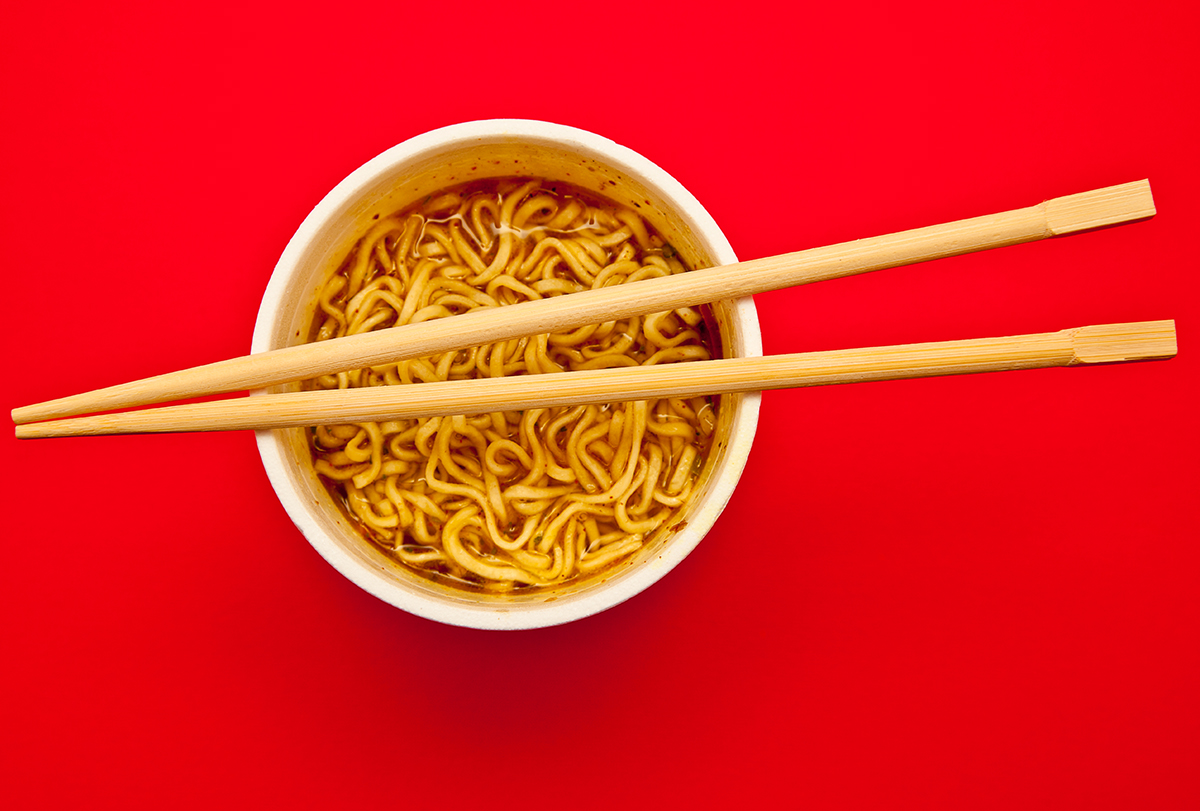
However, when nutrient-depleted foods become a regular part of the diet, they pose a major risk to long-term health and increase the risk of serious problems.
Foods with little to no nutritional value, as opposed to foods containing plenty of nutrients, are considered unhealthy. Unhealthy foods do taste wonderful, but you should exercise restraint when eating them.
Foods to Never Eat
Here are some foods that are best eliminated from the diet.
1. Diet soda
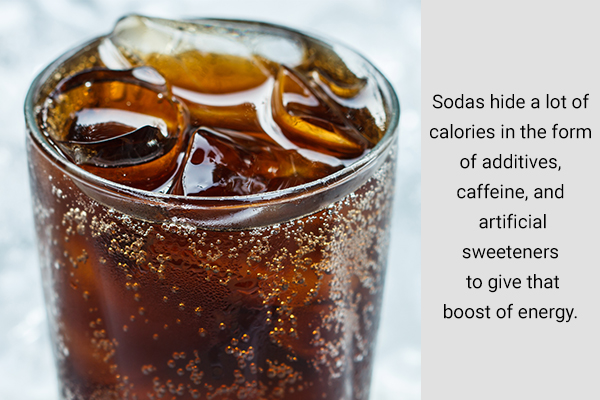
Although diet sodas may seem healthy, they hide a lot of calories in the form of additives, caffeine, or artificial sweeteners to give that boost of energy.
While an occasional can of diet soda is fine, most people tend to overindulge, and this increases their risk for long-term health consequences. (1)
In a recent well-cited study, it was observed that increased diet soda intake was linked to an increase in abdominal obesity, which may be a risk factor for cardiometabolic diseases such as diabetes, hypertension, and high cholesterol levels. (2)
2. Refined flour-based foods

Refined flour, or “maida,” refers to flour that is made from the starchy white part of the grain, while the fibrous bran is removed in the mill.
The removal of fiber makes it easier to use in several food preparations, but it also results in a loss of B vitamins and minerals such as magnesium. (3) This loss in fiber can also predispose a person to develop digestive system issues, and long-term intake is linked to severe diseases such as obesity, heart diseases, and even cancer. (4)
3. Instant noodles
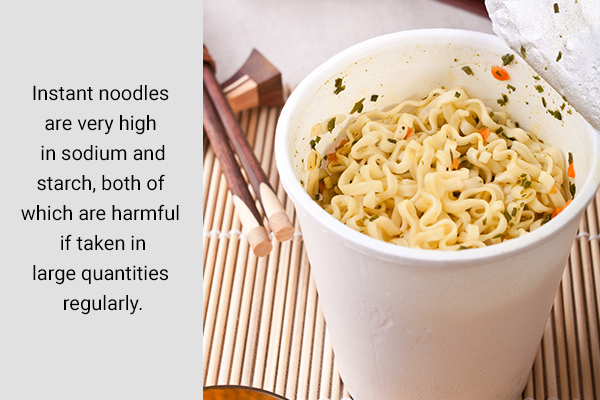
Instant noodles are of two types: air-dried and fried. About 80% of the instant noodles found in stores are fried, since frying results in a more consistent taste and longer shelf life. However, frying also increases the fat content of instant noodles by 15%–20%.
Noodles that are of the rehydration variety – or the cup noodles that are ready to consume just by pouring hot water, the same as sold in aircraft – are fried for even longer and hence have a higher fat content. This high fat content is harmful to health, especially for older people or those with heart issues. (5)
Instant noodles are also very high in sodium and starch, both of which are harmful if taken in large quantities regularly. (6)
4. Low-fat peanut butter
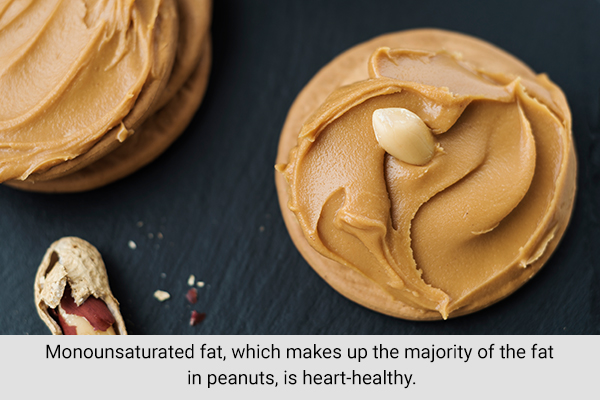
Monounsaturated fat, which makes up the majority of the fat in peanuts, is heart-healthy. But peanut butter contains starchy fillers and additives including corn syrup solids, sugar, and molasses (read: even more sugar), which are used to replace the fat that would normally be present in reduced-fat peanut butter spread.
In the end, just to save the calories from fat (just about 2 grams, or 18 calories), consumers may end up having extra sugar and unnecessary additives.
5. Artificial sweeteners
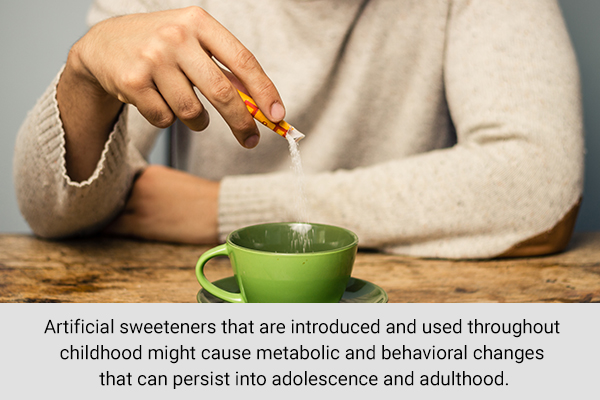
A recent meta-analysis showed that artificial sweeteners that are introduced and used throughout childhood might cause metabolic and behavioral changes that can persist into adolescence and adulthood.
Long-term studies have not been performed on children who have grown up using artificial sweeteners and since no data exist on their long-term effects on children or adults; hence, care must be taken that they are not used unwisely. (7)
6. Canned soup
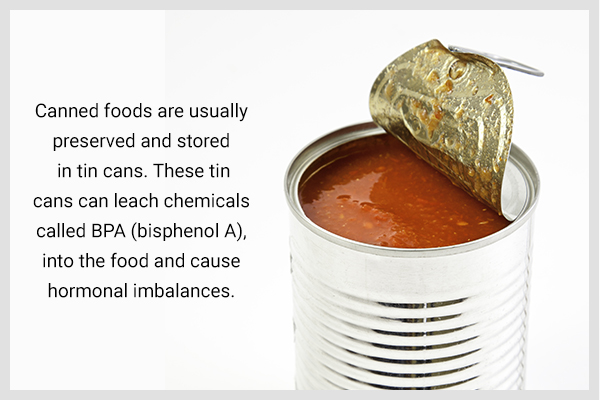
While canned foods are convenient options to buy and store, they are notorious for containing high amounts of preservatives and additives to maintain the freshness of food products and to increase shelf life.
Canned foods are usually preserved and stored in tin cans. These tin cans leach chemicals called BPA (bisphenol A), which can cause hormonal imbalances, into the food items.
Canned soups are also very high in sodium. Sodium is added in the form of salt, which acts as a natural preservative but also increases the sodium content of the soup, which is not recommended for people suffering from high blood pressure or any heart-related issues. (8)
Since canned soup is the most commonly used canned food product in India, it would be wise to steer clear of it, and instead, prepare fresh soup at home as and when needed.
7. Frozen desserts
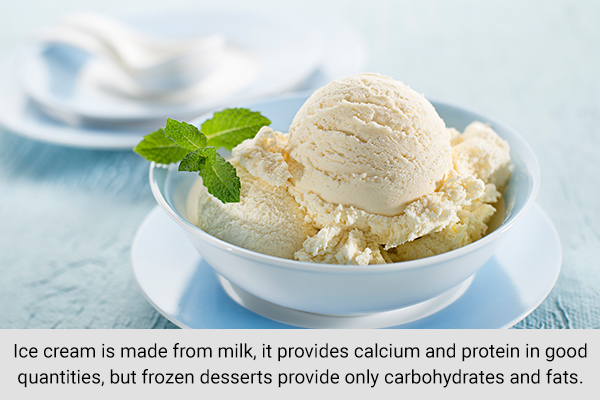
Ice cream is made from milk fats, while a frozen dessert is made from vegetable oil fats. Ice cream contains milk, sugar, and other fruit extracts, but frozen dessert contains only fruit extracts and vegetable fats.
As ice cream is made from milk, it provides calcium and protein in good quantities, but frozen desserts provide only carbohydrates and fats.
8. Processed meats
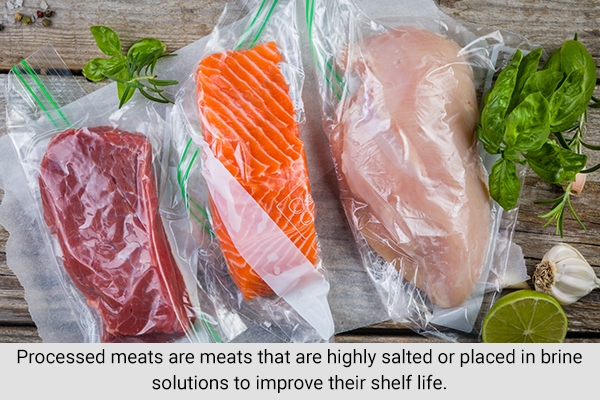
Processed meats are meats that are highly salted or placed in brine solutions to improve their shelf life.
An 8-year follow-up study on American women suggested that diets high in processed meats could increase the risk of developing type 2 diabetes. (9)
Another meta-analysis showed that high levels of red meat consumption, particularly processed meat, may raise mortality across all causes. (10)
9. Pre-cut vegetables
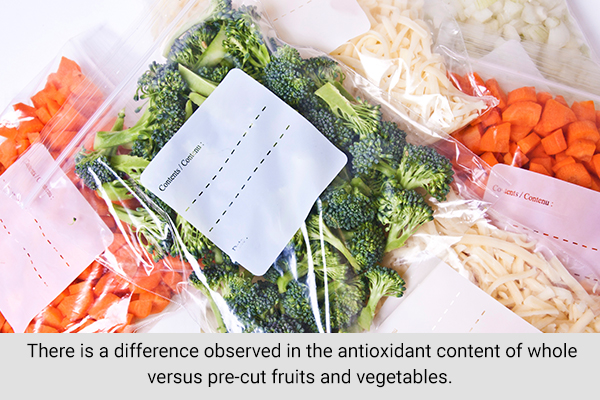
Pre-cut fruits and vegetables are easy and convenient options and are easily available in supermarkets these days. However, their safety and contamination have always been an issue, especially with delays in transportation and improper storage conditions.
Studies have shown that certain fruits and vegetables such as mushrooms, melons, apples, and cauliflower are prone to contamination by microbes. (11)
There is also a difference observed in the antioxidant content of whole versus pre-cut fruits. Antioxidants are important to fight against diseases and improve immunity, among other benefits. The loss of these vital nutrients may have a larger impact if the fruits and vegetables have been cut and stored for a long time. (12)
10. Used oil
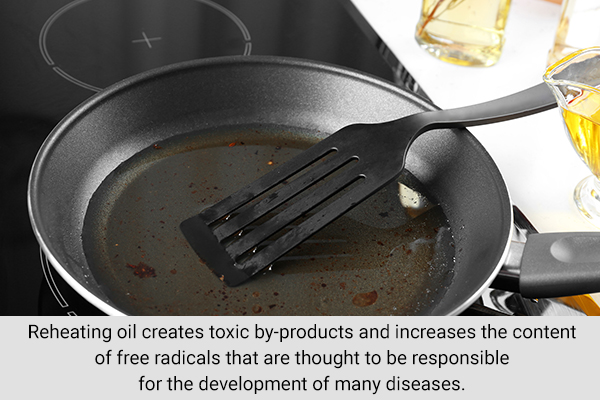
To lower the cost of food preparation, not only at home but also by vendors, it is standard practice to cook with vegetable oil that has been heated repeatedly.
Reheating creates toxic by-products and increases the content of free radicals that are thought to be responsible for the development of many diseases, including cancer and cardiovascular disease. Thus, heating oil repeatedly could have negative health effects. (13)
Most-Asked Questions
I have heard that diet soda is healthier than regular soda. Is it alright if I have it once in a while?
While diet soda is certainly a lower-calorie replacement, it contains artificial sweeteners that may spike your blood sugar levels too. Soda by itself is not very good for regular consumption as it may increase acidity. It is fine to have it once in a while.
I am a working person. Pre-cut vegetables are very convenient for meal prepping. How can I still save time and the nutrients too?
If you are looking for a healthier way to meal prep, you can just clean the produce, remove the stalks and peels, and store it in separate containers or bags. This way, you are still reducing nutrient loss and continuing to meal prep at the same time.
What is a healthier alternative to low-fat peanut butter or other nut butters?
You can make nut butters at home if you have time and a good food processor/grinder. You can also purchase nut butters from local vendors or home businesses.
If purchasing commercial nut butters is your only option, do check the nutrition facts label on the back of the packaging and ensure that it is mainly composed of nuts and does not contain refined palmolein oil.
Final Word
Most of the foods mentioned above have been highly processed or considered convenience or snack foods and beverages. While it may be fine to consume such items once in a while, it is not a good idea to indulge in such foods regularly as they can wreak havoc on health.
Most convenience foods available today are not supported by research. Hence, it may be wise to tread with caution and not give in to the latest food fads and trends.
- Was this article helpful?
- YES, THANKS!NOT REALLY


